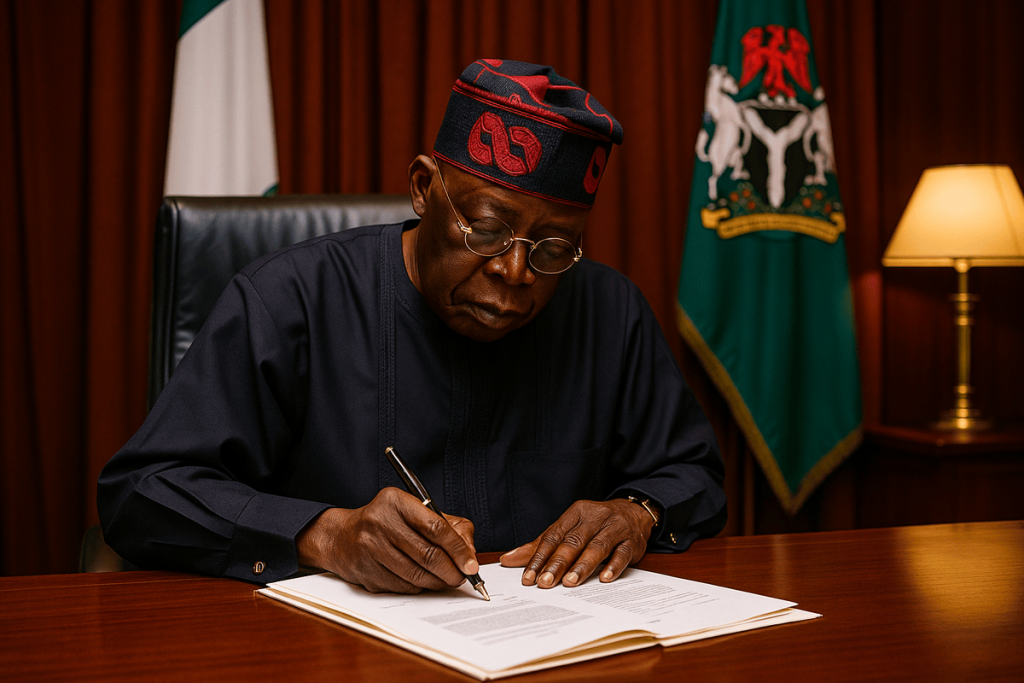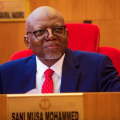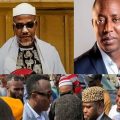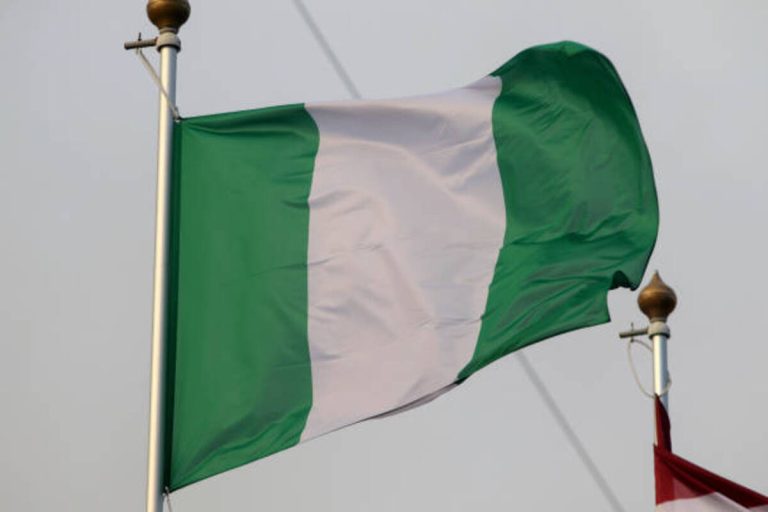
Tinubu meets new military chiefs at Aso Villa, Abuja, following sweeping national security restructuring.
Presidential spokesperson Bayo Onanuga confirmed on Friday that the president approved a sweeping change in the leadership of the armed forces, appointing General Olufemi Oluyede as the new Chief of Defence Staff.
Major-General W. Shaibu was named Chief of Army Staff, Air Vice Marshal S.K. Aneke as Chief of Air Staff, and Rear Admiral I. Abbas as Chief of Naval Staff, while Major-General E.A.P. Undiendeye retained his position as Chief of Defence Intelligence.
Onanuga said the president made the decision “to further enhance the professionalism, vigilance, and unity that define the Armed Forces of Nigeria.”
National Security Restructure and Leadership Renewal
The presidential spokesperson stated that the appointments take immediate effect, noting that the president expressed deep appreciation to the outgoing service chiefs for their “patriotic service and dedicated leadership.”
The reshuffle, which analysts view as one of the most extensive since Tinubu assumed office in 2023, follows weeks of internal reviews within the defence sector and a series of meetings between the presidency and top security advisers.
According to Reuters reports, Nigeria’s armed forces have faced growing scrutiny in recent months over allegations of internal dissent and operational inefficiencies amid multiple security threats across the country.
Background: Coup Speculations and Senior Officer Detentions
The announcement comes shortly after reports emerged that the Defence Headquarters had detained at least sixteen senior officers over alleged breaches of military discipline and service regulations, according to multiple security correspondents familiar with the issue.
While authorities did not confirm whether the detentions were linked to coup plotting, officials described the action as a “routine internal procedure” aimed at maintaining discipline in the ranks.
A BBC report earlier this month noted increased concern within the Nigerian military establishment over rumours of discontent following budgetary disputes and delayed procurement contracts.
Presidency sources, speaking on condition of anonymity because they were not authorized to discuss internal matters, said Tinubu had been “personally briefed” about developments before making the appointments.
Efforts to Stabilize the Armed Forces
According to the presidential statement, the shake-up was part of a larger strategy to rebuild trust and cohesion within the military hierarchy.
The president charged the newly appointed military chiefs to “justify the confidence reposed in them and reinforce operational integrity across commands.”
Political analysts in Abuja say the move signals Tinubu’s intent to assert firmer control over the defence sector amid ongoing insurgencies in northern regions and rising maritime insecurity along Nigeria’s southern coastlines.
Profile of the New Military Chiefs
General Olufemi Oluyede, the new Chief of Defence Staff, previously led strategic operations within the army and is known for his extensive counter-insurgency experience in the northeast.
Major-General W. Shaibu has served as a field commander in several conflict zones, while Air Vice Marshal S.K. Aneke has led Nigeria’s Air Combat Command since 2022, overseeing aerial surveillance missions against extremist groups.
Rear Admiral I. Abbas, now Chief of Naval Staff, previously managed the country’s Naval Doctrine Command, where he spearheaded anti-piracy operations in the Gulf of Guinea.
Security observers say the appointments reflect an effort to blend operational experience with administrative competence, a move long advocated by defence reform advocates.
Restructuring Nigeria’s National Security Architecture
The presidency described the changes as a continuation of Nigeria’s broader security modernization plan initiated in early 2024, which included restructuring command logistics and enhancing joint operations among the armed forces.
According to analysts, Tinubu’s recent defence decisions mirror actions by other African leaders seeking to consolidate military professionalism amid regional instability, referencing recent coup developments in Niger.
Although the presidency did not directly link the reshuffle to those regional events, officials emphasized that the appointments aim to ensure readiness and adaptability in a rapidly evolving security landscape.
Reactions from Political and Security Circles
Lawmakers and security experts have welcomed the reshuffle, describing it as timely and necessary to reestablish confidence in the armed forces.
A member of the Senate Committee on Defence, speaking to Epicstorian News, said the move would “restore a sense of discipline and purpose across the ranks.”
However, opposition lawmakers urged transparency in the selection process and called for parliamentary oversight of defence spending and military promotions.
Public Response and Ongoing Security Challenges
Public opinion has been mixed, with some citizens expressing relief that the presidency acted decisively, while others questioned the timing of the announcement.
Analysts pointed out that the reshuffle coincides with renewed operations against armed groups in Zamfara, Kaduna, and Niger States, suggesting an operational motive behind the changes.
Data from Nigeria’s Security Tracker indicate that more than 2,400 security incidents were recorded in the past year, underscoring the urgency for reform.
Strategic Implications for National Defence
Military sources said the appointments would likely accelerate ongoing reforms within the Ministry of Defence, including plans to digitize troop deployment systems and enhance inter-agency coordination.
Analysts believe Tinubu’s decision reflects a balancing act between loyalty and efficiency, ensuring both stability and renewed leadership within the armed forces.
The presidency reiterated that the reshuffle was “guided solely by national interest and professional competence.”
Regional and International Observers React
Regional security analysts say Nigeria’s move to refresh its military leadership could influence defence policies across West Africa, where militarization and governance tensions remain high.
According to Reuters’ African affairs desk, several governments in the region have been closely monitoring Nigeria’s defence decisions given its role in regional counterterrorism operations.
Observers expect increased coordination between Nigeria and ECOWAS in addressing cross-border insurgencies and maritime threats.
Conclusion: Leadership Transition and National Outlook
President Tinubu’s appointments mark a significant shift in Nigeria’s military command structure and highlight his administration’s attempt to reassert authority over the defence establishment.
The presidency said all newly appointed officers would be sworn in immediately and are expected to assume their new roles at the Defence Headquarters in Abuja.
“All appointments take immediate effect,” the official statement concluded, signalling the start of a new chapter for Nigeria’s military leadership.





